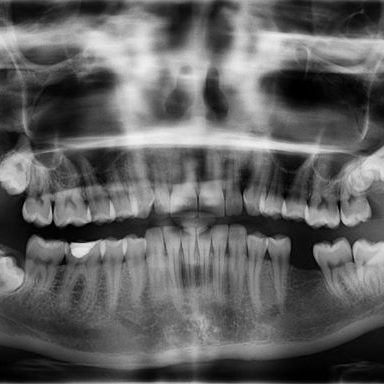Sustaining any type of damage to your teeth is often unexpected and alarming. Whilst you may feel panicked about the options to repair your smile, in actual fact both chipped teeth and broken teeth can often be repaired quickly and painlessly by a skilled dentist.
What to Do With Broken Teeth
Teeth can become damaged in a variety of ways, through eating, impact or decay. Any changes to your teeth often feel much more prominent when felt with your tongue than they appear to the eye. It is important to stay calm and speak with your dentist as soon as you can to determine the appropriate treatment. The best solution will depend of the severity of the damage and the pain (if any) that the broken tooth is causing you.
Chipped Tooth
A chipped front tooth is relatively common due to their position in the mouth; they can be most vulnerable to damage on impact. However, these chips often only require minor treatment – your dentist can repair a chipped tooth with filling material, or gently file the rest of the tooth for an even appearance and to smooth out any sharp edges that may catch on your tongue. Both of these options can also help prevent the chip from getting any larger.
If you still have the chipped fragment of your tooth, store it in a glass of milk until you are able to see the dentist as they may be able to glue the fragment back in place.
As a chipped front tooth is often not painful or time-critical to repair, you do not need to book in for an emergency appointment with your dentist. At Vitality, we understand that you want to restore your smile as quickly as possible, so we will always aim to offer you an appointment with in one working day.
Fractured Cusp
When you sustain a large chip or break to the pointed end of your tooth, this is called a fractured cusp. This type of broken tooth occurs most often due to impact when chewing through food. A fractured cusp only affects the tip of the tooth and does not extend to the nerve, therefore it is often painless and relatively straight-forward for your dentist to treat.
Like chips, small fractures to the cusp can be treated with filling material, or for larger breaks your dentist may need to apply a crown over the tooth.
Split Tooth
If you have a broken tooth that has sustained a vertical crack then this often requires a large repair than a smaller break or chip. If you are experiencing pain or swelling, try not to apply cold water or ice directly to the tooth, as this may aggravate the sensitive nerve and cause additional pain.
The most common type of treatment for a split tooth is a root canal procedure. When visiting a skilled dentist, root canal treatment is simpler and less painful than you may think. Once the root canal is complete, a crown will be applied over the tooth to protect it from further damage. If the root cannot be saved, it may be easier to have the tooth extracted.
Decay-induced Break
If you have an untreated cavity and decay within your tooth then the health and strength of the tooth will deteriorate, sometimes leading to a break. In this instance your dentist will first need to examine the cavity and extent of the broken tooth in order to determine how best to proceed. In most cases they will be able to remove any decay and repair the cavity with a filling. However if the existing cavity is large and irreparable then the best option may be to extract the tooth.
Knocked Out Teeth
If you have lost a complete adult tooth from your mouth, the first thing to do is to find the tooth and keep it safe. Once found, you should ensure the tooth is clean by rinsing it with warm water and then attempt to reposition it in the empty socket. Do not scrub the tooth. If successful, bite firmly on something soft such as a flannel or handkerchief to keep the tooth secure and arrange an appointment with your dentist as soon as possible.
If you are unable to reposition the tooth then place it in a glass of milk until you are able to see your dentist. The sooner the tooth can be reinserted into the socket, the better its chances of healing.
Missing Teeth
If you have lost a tooth or need an extraction, there are several options you can discuss with your dentist to replace the tooth. In most cases, a missing tooth will be replaced with either a bridge or an implant.
A bridge is a relatively quick solution where an artificial tooth is attached to the two adjacent teeth which provide support and keep it in place. A dental implant requires a slightly longer procedure and more than one visit to the dentist, as the implant will need to be surgically inserted into the jaw. However, an implant is often preferable to a bridge as it is more hard-wearing, long lasting and creates a more natural looking smile.
In cases where several teeth are missing, a set of dentures is another option to provide multiple artificial teeth. Dentures are removable and both full and partial sets are available; your dentist will be able to recommend which option is best for you and provide further advice and support.
Broken Teeth in Children
If your child has sustained damage to or lost a baby tooth then your dentist may choose not to attempt repair and allow the tooth to fall out naturally. Developing adult teeth should be carefully looked after and protected from any damage or aggravation that could be caused by repair procedures. If you are concerned about your child’s teeth, contact your dentist for advice on the appropriate course of action to take.
Contact Us to Discuss Treatment for Chipped, Broken or Missing Teeth
For chipped teeth, Vitality Dental are able to provide prompt treatment at our Sussex practice at our Sussex practice. For large, painful breaks or missing teeth, emergency appointments are available.
Contact us today to discuss your requirements and arrange an appointment with our highly skilled dentists for a consultation and tooth repair procedure.


